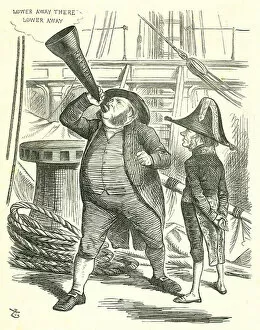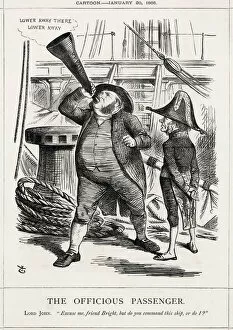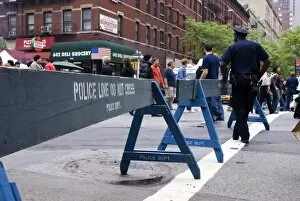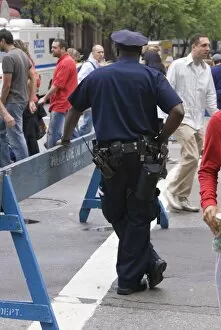Officious Collection
Throughout history, the officious have found ways to insert themselves into the most significant events
For sale as Licensed Images
Choose your image, Select your licence and Download the media
Throughout history, the officious have found ways to insert themselves into the most significant events, from the halls of power during parliamentary reform to the battlefields of war. In "The Officious Passenger" of 1876, an engraving depicts a man's relentless pursuit to board a train, symbolizing the push for political change. During the Spanish-American War, a lithograph shows an officious figure delivering a letter, perhaps carrying news or orders. In satirical cartoons from WW1, officious characters are seen attempting to pass through crowded barriers, leaning on them, or even trying to let others pass. From the German army recruitment to New York's crowd control, They have left their mark on history, their persistence and determination shaping the world around us.










